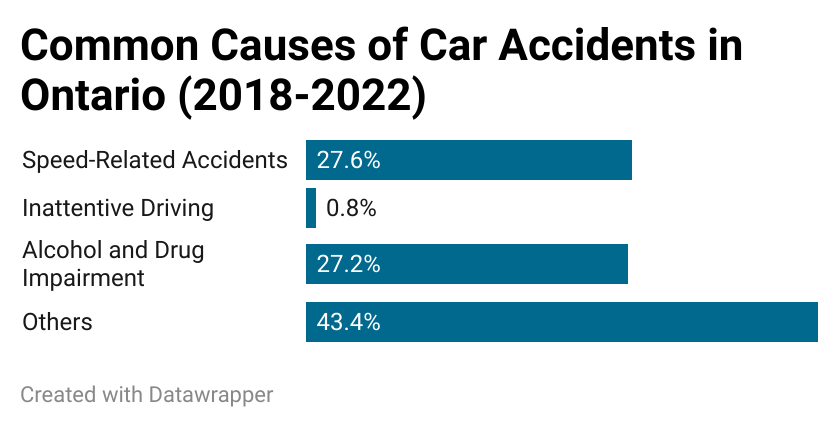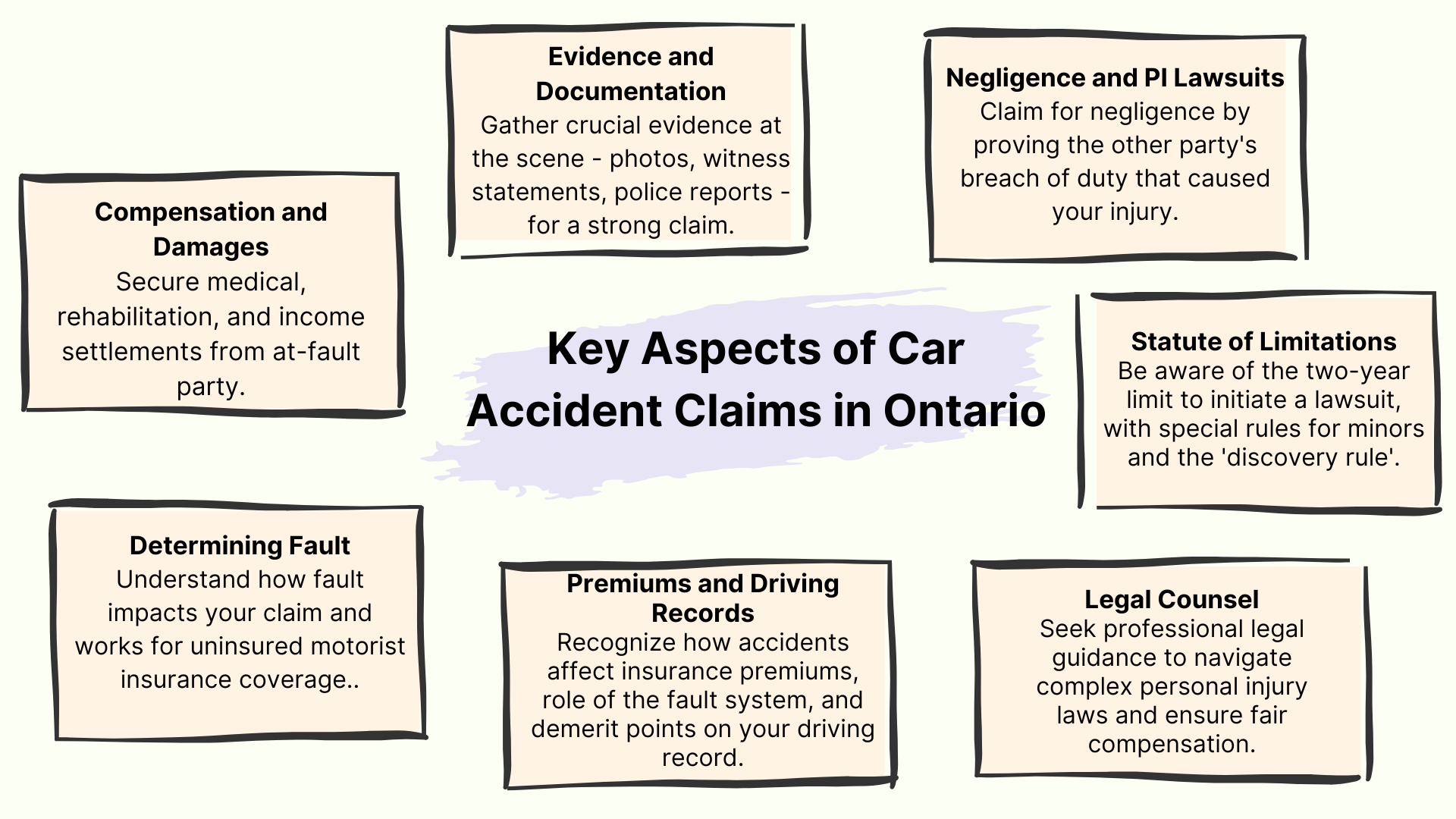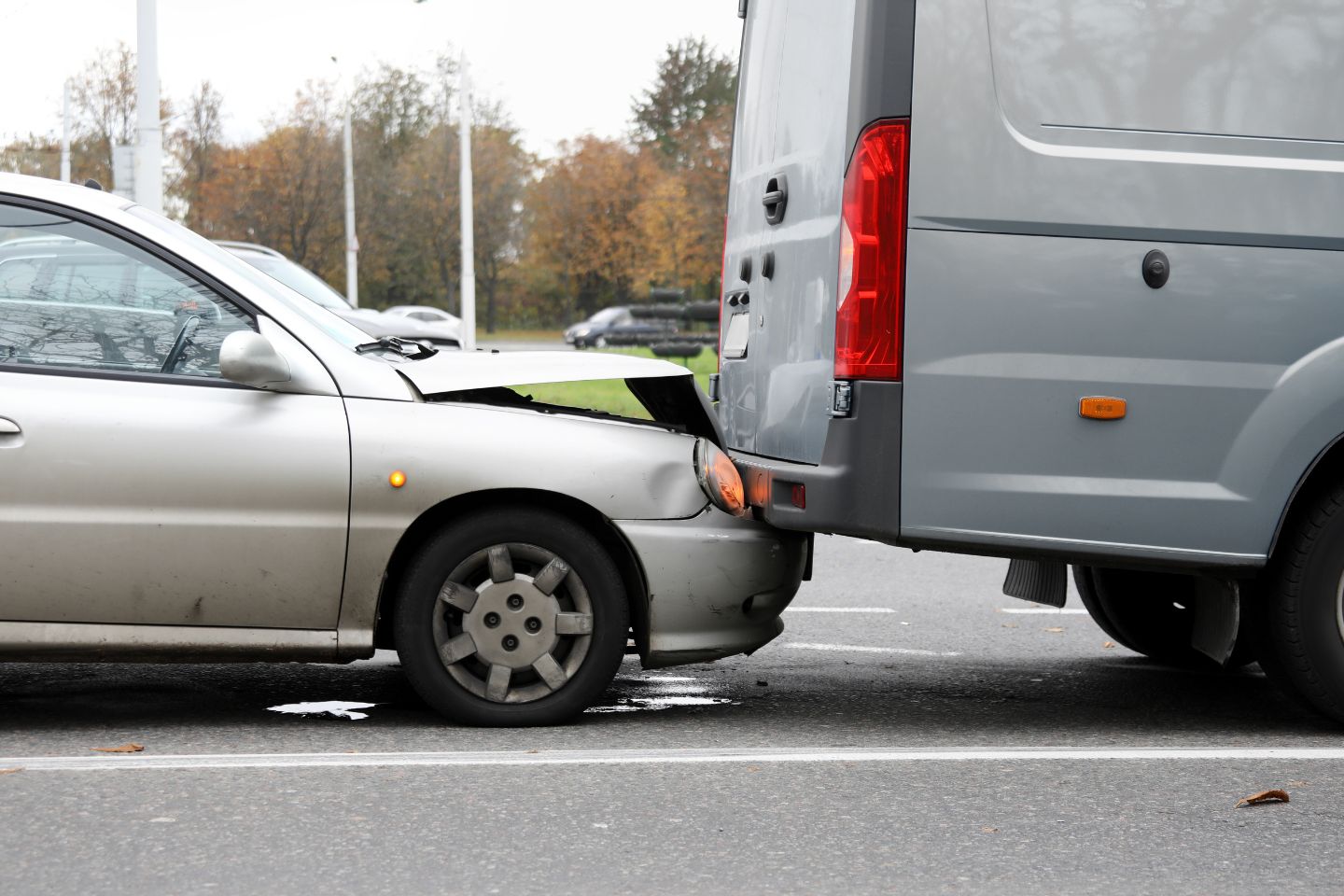In Ontario, California, the average number of serious car accidents has been notably high. According to (2018-2022) data from SWITRS, the city saw an average of 86.2 accidents per year resulting in fatalities or serious injuries.
Accidents can be unpredictable; however, it’s essential to know what steps to take following such incidents. If you’ve been involved in a car accident in Ontario, California, or are simply concerned about road safety in this area, you’re in the right place.
This article offers guidance and support to help you need to on your journey to recovery and the right to compensation.
Main Causes of Car Accidents in Ontario, California


Understanding the main causes of car accidents in Ontario is crucial for prevention and safety. Here are the key factors as identified by the SWITRS data:
- Speed-Related Accidents: Speed is a major concern in Ontario, California. The average number of speed-related fatalities and injuries is approximately 27.6 annually. It’s crucial for drivers to adhere to speed limits to mitigate the risk of accidents.
- Inattentive Driving: Distracted driving, though less frequent, still poses a significant risk. With an average of 0.8 incidents annually leading to fatalities or serious injuries, the importance of staying focused on the road cannot be overstated.
- Alcohol and Drug Impairment: Incidents involving alcohol or drugs remain a serious issue. On average, there are 27.2 fatalities and injuries each year in Ontario, California, due to impaired driving. This alarming statistic highlights the need for sober and responsible driving.
- Nighttime Driving: Nighttime driving presents additional risks. According to the 2021 OTS crash rankings data, there were 108 crashes during night hours, emphasizing the need for extra caution when driving after dark.
Remember, prevention starts with each of us, and adhering to traffic guidelines can significantly reduce the risk of becoming another statistic.
When to Report a Car Accident in Ontario?
Knowing when to report a car accident in Ontario, California is not just about legal compliance; it’s about ensuring everyone’s safety and adhering to the law. Here are the key scenarios where reporting is required, as outlined in the California Vehicle Code:
- Immediate Reporting: In California, the law requires you to report any car accident that results in injury, death, or significant property damage. According to California Vehicle Code Section 16000, you must report these accidents to the California Highway Patrol or the local police department within 24 hours.
- Property Damage Threshold: If there’s property damage, particularly if it exceeds $1,000, it’s mandatory to report the accident. This includes damage to your vehicle, other vehicles, or any property. Failure to report such incidents can lead to legal consequences, including your driving privileges being affected.


To report an accident in Ontario, California:
- Contact Local Law Enforcement: Call the Ontario Police Department or the California Highway Patrol if the accident occurred on a state highway.
- File a Report: Complete a Traffic Accident Report (SR 1) with the California Department of Motor Vehicles (DMV), especially if there’s injury, death, or significant property damage. This needs to be done within 10 days of the accident.
When in doubt, it’s safer to report an accident. If you’re unsure about the steps to take after an accident in Ontario, The Personal Injury Center is here to provide guidance, helping you navigate the legal landscape and connect with the right legal expertise for your situation.
Can You Sue for a Car Accident in Ontario?


In Ontario, California, there are legal avenues for addressing the aftermath of a car accident. Whether you’ve suffered injuries, financial losses, or both, the law provides several options for seeking compensation. Here are some essential aspects to consider:
Evidence and Documentation
Promptly gathering evidence and maintaining detailed documentation is crucial for building a robust claim. Immediate actions at the accident scene can significantly impact the strength of your case.
This includes taking photos of the vehicles involved, the surrounding area, any visible injuries, and capturing details like traffic signs and road conditions. If possible, obtain witness statements and their contact information, as these accounts can be crucial in supporting your version of events.
Additionally, securing a copy of the police report and keeping a comprehensive record of medical treatments, bills, and any other expenses related to the accident is essential. This documentation should include repair costs for vehicle damage, medical expenses, lost income, and any other financial impacts resulting from the accident.
Organizing and maintaining these records from the onset ensures a well-documented and quantifiable claim, enhancing the prospects for adequate compensation.
Compensation and Damages
In Ontario, California, individuals involved in car accidents have the right to seek various types of compensation and damages. These can vary widely depending on the specifics of each case.
Here are some damages, you can seek compensation for:
- Medical and Rehabilitation Expenses: Covers costs for immediate and ongoing medical care related to the accident.
- Income Loss and Lost Earning Capacity: Compensates for time off work and any future earning impairment due to injuries.
- Pain and Suffering: Addresses physical pain and emotional distress resulting from the accident.
- Property Damage: Includes compensation for vehicle repairs or replacement and other damaged personal items.
Settlement or compensation amounts in these cases can range significantly, typically from around $10,000 to $100,000, but this can vary based on the severity of the accident, the extent of the injuries, and other specific circumstances of each case.
When filing insurance claims, the process usually begins with your insurance provider or the at-fault party’s insurer. Compensation is often negotiated through a settlement with the insurance company, a process that can involve detailed discussions to reach an agreeable figure.


Determining Fault
When it comes to insurance claims, determining fault is crucial. Understanding how fault is determined and what steps to take in case of disputes is important for anyone involved in a car accident.
- Fault Determination Rules: California follows a fault-based (or “tort“) system for car accidents. This means that the person who is legally at fault for causing the accident is responsible for the damages. Insurance companies typically investigate the accident to determine fault based on evidence and police reports.
- Disputing Fault Determinations: If you disagree with your insurance provider’s assessment of fault, you have the right to dispute their decision. This might involve providing additional evidence or seeking the assistance of an attorney to argue your case.
- Challenges for Uninsured Drivers: Being involved in a car accident without insurance in California can lead to significant legal and financial challenges. Uninsured drivers may face personal liability for damages and injuries caused in an accident.
- California’s Uninsured Motorist Fund: Uninsured motorists may still be able to receive some compensation through their own or the other party’s uninsured motorist coverage, if available. However, this is typically less comprehensive than standard auto insurance.
Negligence and Personal Injury Lawsuits
In legal terms, negligence occurs when someone fails to exercise the level of care that a reasonable person would in the same situation. In the context of car accidents, this could mean anything from distracted driving to failing to adhere to traffic laws.
To successfully claim damages due to negligence, you must demonstrate that the other party owed a duty of care, breached that duty, and caused your injuries as a result. This process often involves gathering evidence such as witness statements, traffic camera footage, and accident reports.
- Personal Injury Lawsuit: If you’ve been injured in a car accident due to someone else’s negligence, you have the right to file a personal injury lawsuit. This allows you to seek compensation for damages that are not covered by statutory accident benefits or your insurance policy.
- Claims for Family Members: Under the California Code of Civil Procedure, family members of an injured person may be eligible to file a claim for damages. These claims can cover losses related to the loss of companionship, emotional distress, and the inability of the injured person to provide the same level of care and support as before.
Impact on Premiums and Driving Records
The repercussions of a car accident in Ontario, California extend beyond the immediate aftermath and can significantly impact both your insurance premiums and driving record. Understanding these implications is crucial for any driver involved in an accident.
- Rate Increases: If found at fault in a car accident, expect potential increases in your insurance premiums. Insurance companies assess your risk based on your driving history, with accidents typically indicating a higher risk level.
- Fault-Based Insurance System: California uses a fault-based system for car accidents. This means that the driver responsible for the accident bears the cost of damages. Being at fault can lead to higher insurance premiums.
- Points on Your Driving Record: Traffic violations and accidents can lead to points on your driving record in California. The California Department of Motor Vehicles (DMV) records these points, which can lead to higher insurance rates or even license suspension if too many are accumulated.
- Long-Term Impact on Driving Record: Accidents generally stay on your driving record for a certain period, influencing your insurance rates and potentially how insurance companies view your driving ability.


Statute of Limitations for Filing Claims
The statute of limitations is a critical timeframe that dictates the window for initiating a claim or lawsuit. California Code of Civil Procedure Section 335.1., this timeframe is typically two years from the date of the car accident.
This standard two-year period is crucial for preserving your legal rights and options, as failing to file a lawsuit within this window generally results in losing the right to sue. This time limit is applicable to most personal injury claims resulting from car accidents.
However, there are notable exceptions and considerations. For minor claimants, the limitation period commences on their 18th birthday, extending their opportunity to initiate legal action until they turn 20.
Additionally, the “discovery rule” may apply in certain cases. This rule implies that the two-year period may start from the date the injury was discovered, rather than the accident date. This is particularly relevant in situations where injuries or their full impact are not immediately evident.
Role of Legal Counsel
A knowledgeable attorney can provide crucial guidance through the complexities of personal injury law, ensuring that your rights are protected and that you receive fair compensation. They bring expertise in negotiating with insurance companies, understanding the nuances of the accident, and building a strong case on your behalf. This professional support is invaluable, especially when navigating the intricate processes of filing claims and lawsuits within the set legal timeframes.
If you’ve been involved in a car accident in Ontario, California, and are considering your legal options, The Personal Injury Center is here to assist. Our team of experienced professionals can connect you with skilled legal counsel tailored to your specific situation. Don’t navigate this challenging journey alone, contact us today to explore how our network of attorneys can advocate for you and help you move forward with confidence.


Key Takeaways
|



